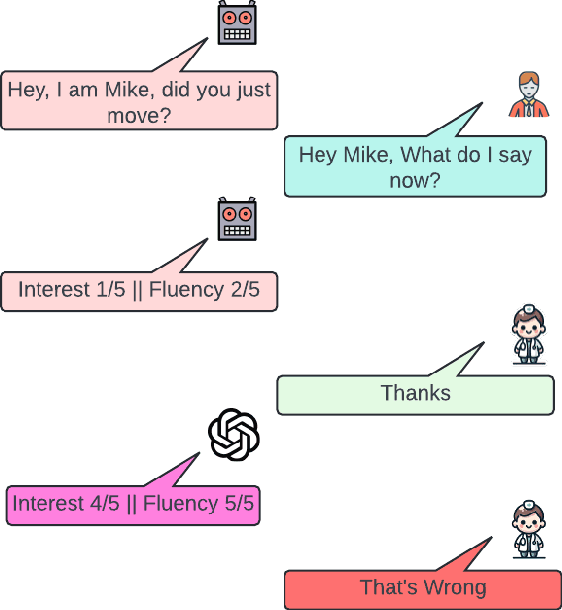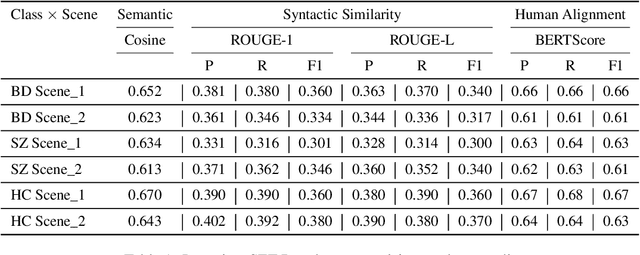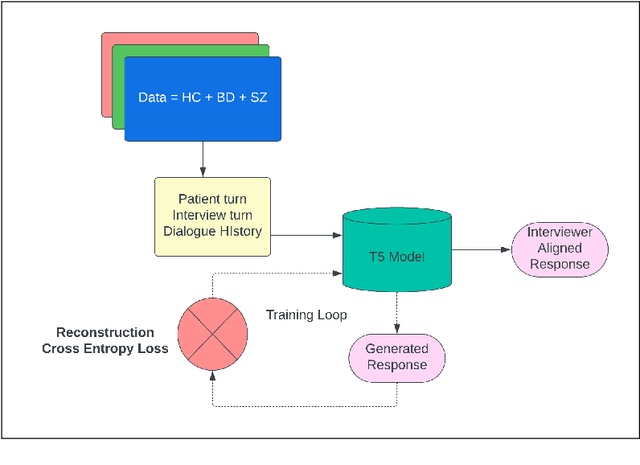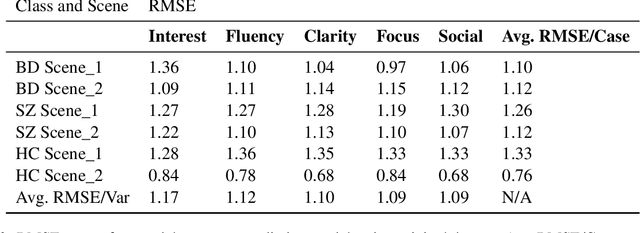Colin Depp
MindScape Study: Integrating LLM and Behavioral Sensing for Personalized AI-Driven Journaling Experiences
Sep 15, 2024Abstract:Mental health concerns are prevalent among college students, highlighting the need for effective interventions that promote self-awareness and holistic well-being. MindScape pioneers a novel approach to AI-powered journaling by integrating passively collected behavioral patterns such as conversational engagement, sleep, and location with Large Language Models (LLMs). This integration creates a highly personalized and context-aware journaling experience, enhancing self-awareness and well-being by embedding behavioral intelligence into AI. We present an 8-week exploratory study with 20 college students, demonstrating the MindScape app's efficacy in enhancing positive affect (7%), reducing negative affect (11%), loneliness (6%), and anxiety and depression, with a significant week-over-week decrease in PHQ-4 scores (-0.25 coefficient), alongside improvements in mindfulness (7%) and self-reflection (6%). The study highlights the advantages of contextual AI journaling, with participants particularly appreciating the tailored prompts and insights provided by the MindScape app. Our analysis also includes a comparison of responses to AI-driven contextual versus generic prompts, participant feedback insights, and proposed strategies for leveraging contextual AI journaling to improve well-being on college campuses. By showcasing the potential of contextual AI journaling to support mental health, we provide a foundation for further investigation into the effects of contextual AI journaling on mental health and well-being.
Using LLMs to Aid Annotation and Collection of Clinically-Enriched Data in Bipolar Disorder and Schizophrenia
Jun 18, 2024



Abstract:NLP in mental health has been primarily social media focused. Real world practitioners also have high case loads and often domain specific variables, of which modern LLMs lack context. We take a dataset made by recruiting 644 participants, including individuals diagnosed with Bipolar Disorder (BD), Schizophrenia (SZ), and Healthy Controls (HC). Participants undertook tasks derived from a standardized mental health instrument, and the resulting data were transcribed and annotated by experts across five clinical variables. This paper demonstrates the application of contemporary language models in sequence-to-sequence tasks to enhance mental health research. Specifically, we illustrate how these models can facilitate the deployment of mental health instruments, data collection, and data annotation with high accuracy and scalability. We show that small models are capable of annotation for domain-specific clinical variables, data collection for mental-health instruments, and perform better then commercial large models.
Contextual AI Journaling: Integrating LLM and Time Series Behavioral Sensing Technology to Promote Self-Reflection and Well-being using the MindScape App
Mar 30, 2024Abstract:MindScape aims to study the benefits of integrating time series behavioral patterns (e.g., conversational engagement, sleep, location) with Large Language Models (LLMs) to create a new form of contextual AI journaling, promoting self-reflection and well-being. We argue that integrating behavioral sensing in LLMs will likely lead to a new frontier in AI. In this Late-Breaking Work paper, we discuss the MindScape contextual journal App design that uses LLMs and behavioral sensing to generate contextual and personalized journaling prompts crafted to encourage self-reflection and emotional development. We also discuss the MindScape study of college students based on a preliminary user study and our upcoming study to assess the effectiveness of contextual AI journaling in promoting better well-being on college campuses. MindScape represents a new application class that embeds behavioral intelligence in AI.
 Add to Chrome
Add to Chrome Add to Firefox
Add to Firefox Add to Edge
Add to Edge